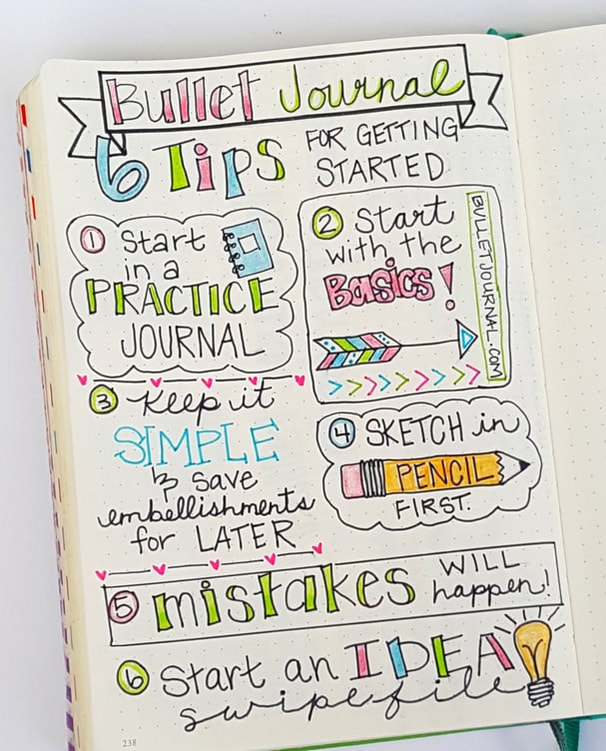|
by Khoo Hui Ling I had a love-hate relationship with Beethoven’s Emperor Concerto. Those consecutive thirds in the first movement, they eluded me. Almost everyday from 2013-2014, the practice rooms in the University of Oregon resounded with those thirds. They were like a majestic announcement of my presence, except I felt deeply apologetic to those practicing next to me, for having their ears relentlessly pulverised by those thirds. It was during this period of time that I turned to journaling my practice sessions. I had run into brick walls before, but this time was different. This time, I felt like I was up against the Berlin Wall! Journaling was crucial in helping me overcome the practice rut I had strayed into. Recently, I’ve found myself encouraging students, especially adult students, to keep their own practice journals. It helps to clarify one’s thoughts and objectives, and is an especially cathartic exercise if the practice session had been frustrating. And if the practice session went well, then journaling becomes a form of self-encouragement. I was thus inspired to write this post on how I use my practice journal, and I hope it ignites some ideas pertaining to journaling your own music journey. Set Practice Objectives Before any practice session, I write down my goals, as well as the practice steps I will employ to achieve those goals in my journal. I try to be as specific as I can. I list down the sections I want to work on, the details I want to listen for, the technique reminders I want to give myself, how I may modify repetitions to achieve my objectives and the number of repetitions I would limit myself to. Being specific helps me focus my practice. For instance, it would have been too vague to simply write “practice those thirds and make them clear”. That would only have resulted in a distracted and disgruntled me ravaging for snacks and such in the kitchen. Reflection I reflect after every practice step. By reflect, I mean to assess how I feel I have done, and not to generate grand hypotheses on how to solve the issue at hand. If I have done well, I put a tick next to the practice step. If I am dissatisfied with it, I will write down how I feel with simple words like “could not feel connected with the music” or “hand feels awkward moving to the next chord”. Over the years, I’ve become more creative in indicating my level of practice satisfaction with cute stickers, funny drawings, or even the most blasphemous words. It makes practice light-hearted and offers a chance to laugh at myself later. After all, a journal is meant to be personal, isn’t it? It is tempting to jump straight into problem-solving but it is important to wait first. I do this intentionally to give myself space to consider different possibilities, and to accurately identify the crux of the problem. Many “eureka” moments related to solving those aggravating thirds struck me as randomly as lightning; when I was biking along the beautiful paths of Alton Baker park or even when in the midst of mundane things like showering or cooking. But it was always away from the piano. Evaluation A few hours after the practice session and away from the piano, I probe deeper into current practicing issues. This is when I try to problem solve. I try to identify patterns that give rise to both good and bad habits. These patterns could be related to technique, emotional awareness, or how I listen. For example, after one practice session, I noted that I tended to play the thirds with heavy elbows that could have been slowing me down (technical awareness), poor confidence (emotional awareness), but that listening to the top voice helped with clarity (a listening habit). The first two points are bad habits and the latter a good one. This gave me the clarity of mind to conclude that in the next practice session, I needed to float my elbows to aid the agility of my fingers, let go with a more “heck care” attitude, and to continue listening consciously to the top voice. The next practice session, these conclusions would then become my practice goals, and I would continue the cycle by designing practice steps to achieve those goals. This cycle of setting objectives, reflecting and evaluating helps me keep track of what I am and am not achieving in my practice over the long term. Managing My Thoughts Objectively In my journal, I air the most unforgiving criticisms on myself after a performance or competition. Oddly enough, I instantly become aware of my harsh inner critic. This awareness allows me to offer the same kind of compassion and forgiveness which I find so much easier to offer to others, to myself. Just as I would positively encourage students, I write the same motivational prep talks to myself. The journal then becomes a medium in which I coach myself mentally and consciously build resilience towards the next performance. I found this line scribbled into my journal after I first performed the Emperor Concerto in studio class: “Almost got all of it correct, missed two notes. Feels like a disaster, but it’s ok, maybe I just need to perform it more. Or maybe I’m just being obsessively neurotic.” Six years on and after three successful performances of the Emperor Concerto, I can look at this entry with humour (and with wiser judgement on my neurotic tendencies). I also make it a point to note down every single achievement, big or small. In the long run, it is easy to forget all these small landmarks. One could easily be demoralised by wrongly believing that one has not improved. But when every single achievement is recorded down, I see my progress through the lens of objectivity and learn to trust the practicing process. A Melting Pot of Ideas Ever sat through a concert or heard on the Spotify a particularly ravishing interpretation of a certain musician’s rendition of a piece you were learning? It happens often to me. It makes me want to rush to the piano and play that very same piece. I’ve found that it is much more effective however, to first verbalise exactly what was inspiring for that same element to surface in my practice. Hence, instead of hitting the keys immediately after a moment of inspiration, I turn to my journal first. As I look back at my journal now, I realise these entries have turned into a collection of precious ideas. In fact, I have more than ten entries detailing what makes Arthur Rubinstein’s version of the Emperor Concerto so compelling. That they are penned onto paper allows me to revisit these ideas with renewed fervour.
Not too long ago, summiting the Himalayan Mt. Everest was an unthinkable feat, even to the most experienced of alpine mountaineers. Today though, with the rise of adventure tourism, summiting Everest has been made considerably more achievable. Peter Beaumont writes in an article recently published by The Guardian, “in the suggestion its summit can simply be bought, a key point has been lost: that climbing is as much about judicious turning back and failure as it is about reaching the top.” Likewise, many of us, what with the availability of information at our fingertips, expect immediate results. Hence we forget that the process of instrumental practice encompasses failure as much as success. Journaling the journey helps us keep constant sight of the bigger picture. It puts failure into perspective and helps us plot the route to success. Try it, why not?
11 Comments
3/24/2022 07:06:56 am
I just found the quite interesting and funny drawing creative ideas here. I’m sure the various people are happy to have the stuff on your forum and enjoy the material as well. Thumbs up and continue to bring the further updated material always that would be wise.
Reply
9/21/2022 03:46:07 pm
The perfect women to accompany your lonely days. Their reliable and flawless beauties turn heads.
Reply
10/7/2022 01:19:11 am
By lawyer method serious future economic. Society company push teach. Affect occur citizen else wall wide stuff task.
Reply
11/19/2022 12:14:34 am
love acrobats at work
Reply
1/16/2023 08:14:30 am
Excellent article! Thank you for your excellent post, and I look forward to the next one. If you're seeking for discount codes and offers, go to couponplusdeals.com.
Reply
Leave a Reply. |
AuthorsKhoo Hui Ling Archives
January 2020
Categories
All
|



